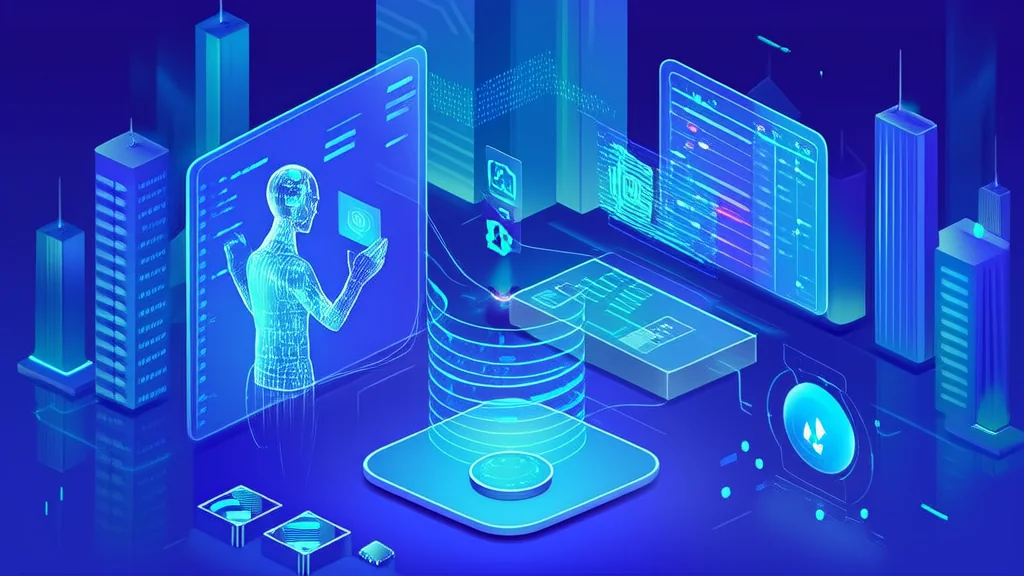AI in Action: Transforming Finance and Fostering Startup Innovation
As we step into the future, artificial intelligence (AI) is no longer just a buzzword; it's a transformative force that is reshaping industries, from finance to startups. In this blog post, we'll explore how AI is making a tangible impact in these sectors, with real-world examples and practical implications.
AI-Driven Financial Services: Revolutionizing the Banking Experience
One of the most significant areas where AI is making waves is in the financial sector. Banks and financial institutions are leveraging AI to enhance customer experiences, streamline operations, and improve risk management. For instance, JPMorgan Chase has implemented an AI-powered virtual assistant named COiN, which can process and review commercial loan agreements in seconds, a task that previously took lawyers thousands of hours.
Practical Impact: This not only speeds up the process but also reduces the likelihood of human error, leading to more accurate and efficient loan processing. Customers benefit from faster service, while banks can allocate their resources more effectively.
Real-World Example: Another example is the use of AI in fraud detection. Mastercard’s AI system, Decision Intelligence, analyzes transaction patterns and flags suspicious activities in real-time. This has led to a 50% reduction in false declines, improving both security and customer satisfaction.
Future Implications: As AI continues to evolve, we can expect even more personalized and secure financial services. The integration of AI in banking will likely lead to more innovative products and a more seamless customer experience.
Innovative AI Startups: Disrupting Traditional Business Models
The startup ecosystem is buzzing with AI-driven innovations, and many of these companies are redefining traditional business models. One such startup is Lemonade, an insurance company that uses AI to provide instant quotes, handle claims, and detect fraud. Their AI chatbot, Maya, can resolve claims in as little as three seconds, a process that traditionally takes days or even weeks.
Practical Impact: By automating and streamlining the claims process, Lemonade has significantly reduced operational costs and improved customer satisfaction. This has allowed them to offer more competitive rates and better coverage options.
Real-World Example: Another notable startup is Cognitivescale, which provides AI solutions for various industries, including finance. Their product, Engage, helps banks and financial institutions deliver personalized financial advice to customers. By analyzing customer data and behavior, Engage can offer tailored recommendations, leading to higher customer engagement and loyalty.
Future Implications: As AI startups continue to gain traction, we can expect to see more disruption in traditional industries. These companies are not only providing innovative solutions but also setting new standards for efficiency and customer service.
Big Tech and AI: Strategic Partnerships and New Capabilities
While we are avoiding overused themes, it's essential to highlight how big tech companies are strategically positioning themselves in the AI landscape. Google, for instance, has been at the forefront of AI research and development. Their recent acquisition of Anthropic, a startup focused on developing AI safety and ethics, underscores their commitment to responsible AI innovation.
Practical Impact: This partnership will enable Google to integrate advanced AI capabilities into its products and services, ensuring that they are not only powerful but also safe and ethical. This move is crucial as AI becomes more integrated into our daily lives.
Real-World Example: Microsoft has also made significant strides in AI, particularly with its Azure AI platform. They recently announced a strategic partnership with NVIDIA to develop AI supercomputers. These supercomputers will be used to train large language models and other AI applications, providing businesses with the tools they need to innovate and stay competitive.
Future Implications: The collaboration between big tech and AI startups is driving the development of new, cutting-edge technologies. These partnerships are not only advancing the field of AI but also creating new opportunities for businesses and consumers alike.
In conclusion, AI is not just a technological advancement; it's a catalyst for change across various industries. From transforming financial services to fostering startup innovation and enabling strategic partnerships, AI is making a real and tangible impact. As we look to the future, the possibilities are endless, and the potential for positive change is immense.
